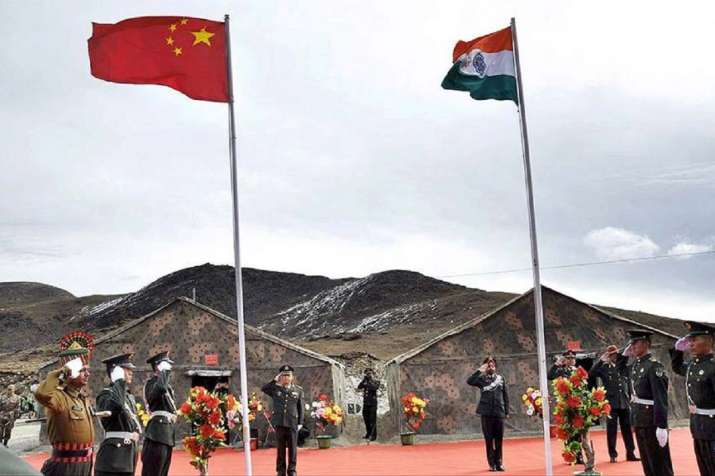The premeditated and abhorrent killing of unarmed Indian military personnel by Chinese soldiers on the night of 15 June, when they had gone with prior agreement, has revealed the level of aggression that has been built up in the Chinese troops. Their conduct, which violates all norms of military conduct handed down over the centuries, exposes the attitude and thinking of the Chinese leadership, at least in the junior to middle levels of the People’s Liberation Army (PLA) hierarchy.
China’s action must provoke appropriate Indian military retaliation. China has additionally shown no remorse and, on the contrary, blamed India for the confrontation in which Indian soldiers were killed, saying they were “on China’s side of the LAC”. Failure to respond and carrying on with business as usual will send the wrong message to Beijing, which will cease to take India seriously. It will additionally convey a sense of New Delhi’s helplessness to other friends of India as well as its neighbours in South Asia, with attendant adverse consequences. This is the time for India to take note of which friends come out in open support and who offer gratuitous advice that India and China should talk, forgetting it takes two to talk!
India, however, remains confronted with the larger issue of pushing back the Chinese forces who have massed at multiple points over more than 1,100 kilometers of the Line of Actual Control (LAC). Having spent so much time, energy and money on creating an arc of sustained military pressure along India’s northern border, China will not easily withdraw from its present locations. Indicating that this was long planned, Zhou Chenming, a Beijing-based military expert said the “recent increase in high-altitude military exercises by PLA troops was intended as a warning to India that they are ready for combat”. Beijing will be prepared for talks—which it will ensure are protracted—as its continued military presence marks a new LAC. The force build-up, in fact, suggests much more than just “salami slicing”, which China has been doing over the years. China probably has a larger agenda, which could well be to make a bold, deep thrust and cut off India’s access to Daulat Beg Oldi and thereby secure its strategic and financial investments in the larger Ladakh area of Aksai China, PoK, Gilgit and Baltistan.
There have been indications at least since April of Chinese civilian activity related to these developments. Pointing to China’s long-term interest in the Pangong Lake, Dorjee Tsedup, Deputy Chairman of the TAR People’s Government and head of Pangong Lake Governance travelled to Rutok County on 21 April to inspect the lake and its environment. Hinting at long-term plans, Dorjee Tsedup emphasised that law enforcement and protection of the Pangong Lake “is important for long-term work”. Separately, officials of the Rutok County judicial bureau and Ngari regional customs and commerce bureau conducted propaganda campaigns in the border villages of Deru and Jaggang, also known as Chagkang village, not far from Demchok in Ladakh, to explain the alignment of China’s border. In late May, the Ngari public security bureau revealed that all its public security personnel had received “intensive real combat training”.
While some Chinese say China does not want escalation and is ready to talk, the Chinese Communist Party (CCP)-owned Global Times (17 June) indicated China will not budge. Hu Zhiyong, a research fellow at the Institute of International Relations of the Shanghai Academy of Social Sciences, was quoted as insisting that the incident in which 20 Indian military personnel
The same day another Global Times article said “Indian society should wake up from its geopolitical fantasy, view China pragmatically and the two countries’ border disputes”. It asserted: “China’s basic policy toward India is to keep China-India relations and the border areas stable. In the meantime, China resolutely defends its territorial sovereignty.” It warned: “The Indian side should never think about pushing China to make concessions, because China won’t. Moreover, China’s countermeasures will never be late no matter the cost. China won’t budge in terms of the border issue no matter how India messes it up. A confident and capable China won’t hesitate in its strategic decisions either.”
Any military response will need to be accompanied by other measures to convey national ire. For a start, India should undertake a clear-eyed comprehensive review of the India-China relationship. It should seriously consider walking out of the Shanghai Cooperation Organisation (SCO), BRICS etc. Restrictions on the import of Chinese goods, award of government contracts to Chinese companies etc., will elicit prompt Chinese attention. Chinese newspapers are already saying geopolitics should not be mixed with trade.
Any conflict provoked by Xi Jinping’s brinkmanship will entail costs which both leaders should want to avoid. If Chinese President Xi Jinping opts for open conflict he will need to really be confident that the PLA can deliver an outright victory, which realistically is impossible. Anything short of that will dent his, the CCP’s and PLA’s credibility. A conflict will also accelerate China’s isolation, coalesce an international coalition of democracies, and deny it the huge Indian market.
Jayadeva Ranade is a former Additional Secretary, Cabinet Secretariat, Government of India and is presently President of the Centre for China Analysis and Strategy.

